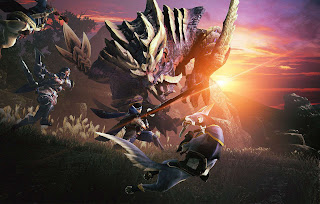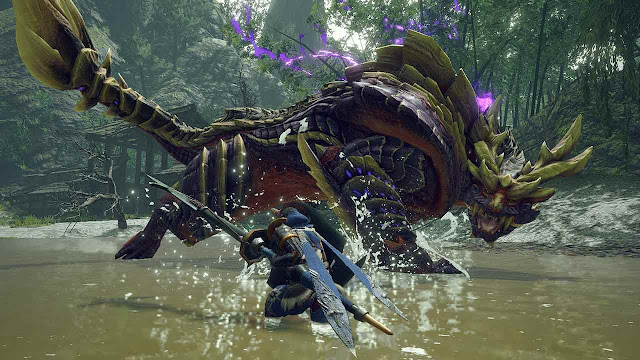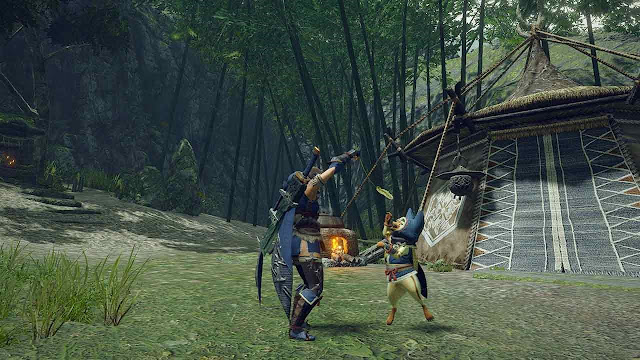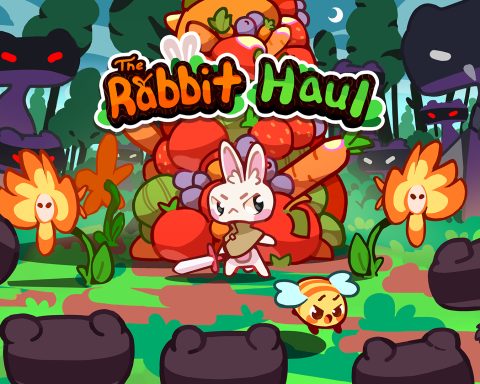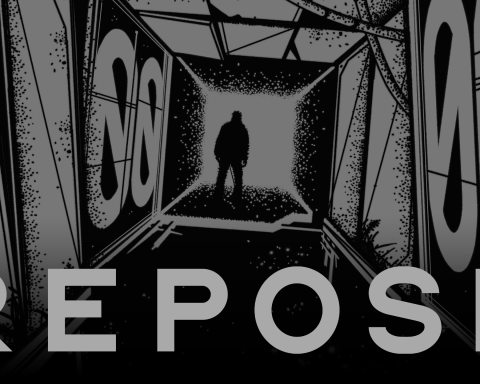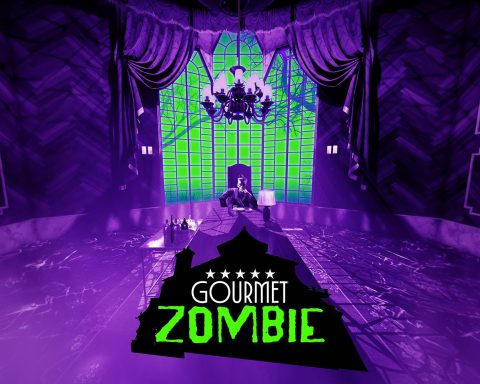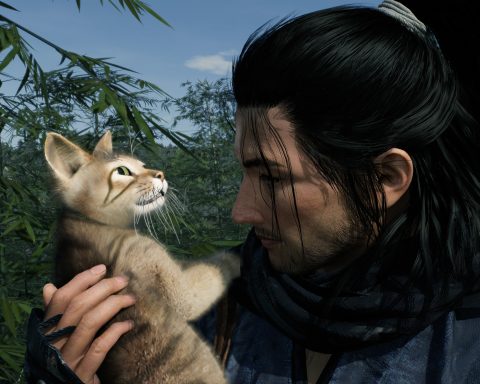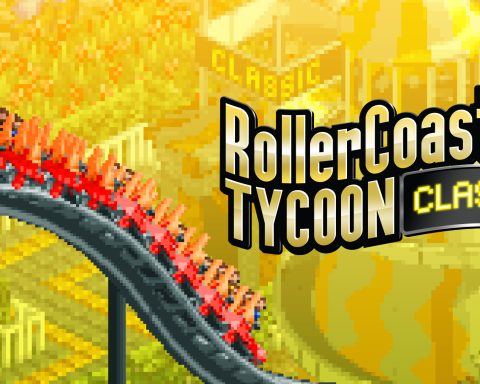It’s not often you’ll find a game (or series) that you’re absolutely terrible at, but can still appreciate and enjoy. I do have one such series. Monster Hunter. I’ve always struggled to wrap my head around Capcom’s epic boss battle simulation, but I’ve also always appreciated what it stood for, what it has achieved, and how it has done it. Monster Hunter Rise is no different. If anything, I’ve found it even more difficult because it has amped up the action quotient even further, in such a way that puts mastery of it even further away from me. I have managed to struggle my way through a fair chunk of it for review, however, and the real point that’s pertinent here is that I absolutely love it.
To put it in really simple terms, Monster Hunter is an extremely Japanese property, and Monster Hunter Rise has really doubled down on it by making the link back to Japanese storytelling traditions and aesthetics even more blatant. People often ignore the value of Monster Hunter as a storytelling experience, but for me that’s where its strength and staying power really lie. It’s not that I think it tells a deep story through its words, of course, but Monster Hunter works wonders as a storytelling experience thanks to a combination of a thin, but engaging, main narrative, a deep reverence and reliance on Japanese folkloric tradition, as well as lot of emergent experiences along the way.
What I love about Monster Hunter Rise’s narrative is how explicitly it plays on the Hyakki Yagyō concept, which I’ve discussed previously in other contexts on DDNet, but is very much relevant to this game as well. The game’s very loading screen looks like it’s taken directly from one of the scrolls that depict Hyakki Yagyō, and the structure of the game itself very much follows through with that narrative angle, of the night parade of a hundred yokai. This game replaces the demon-like yokai of Hyakki Yagyō with these animalistic monsters, but in practice, the concept of a “flood” of these forces of nature that threaten to wash over any humans and civilization that gets in the way is a spot-on, direct copy of the theme. Indeed, Hyakki Yagyō is often characterised as a “riot,” and in Monster Hunter Rise for the first time there are “rampage” sequences where you need to protect your town from a swarm of big monsters at once. These sequences are especially challenging, blending some light tower defence mechanics in with the standard action gameplay, and they’re such a desperate scramble and event that it does very much feel like you’re facing down a “parade” of these things.
Then there’s the emergent narrative, which comes through particularly strong in the multiplayer. There’s such a range of customisations, weapon mixes, aesthetic designs and so on that make every adventure a truly individual, unique story experience, and whether the hunt is a success or not, it feels like it was worthwhile. One of the things that I’ve found really impressive abut Monster Hunter over the years is the way that it makes what is a pretty endless grind interesting this way. You’ll often have to replay these big battles multiple times for the resources that you get out of killing specific monsters, but every single time feels worthwhile and different thinks to the huge range of moving parts that can affect the flow of the battle. On top of that, there are times when you can get a group of friends together to quest together. Monster Hunter is neither RPG nor MMO, but the multiplayer camaraderie that comes from carefully building a party that works together with friends is right up there with the most memorable D & D adventures or World of Warcraft raids.
What Capcom has been particularly effective at doing in recent times is making the game just as engaging as a single-player experience. Previous Monster Hunter titles could feel lonely and empty if there weren’t people to party up with. Monster Hunter Rise has some truly interesting environments to explore, filled with fun little nooks and crannies. The “Rise” in the title refers to a greater focus on vertical movement thanks to zipline-style “wirebugs,” and finding a way to the perfect mountaintop vantage point to watch the sunset is almost as immersive and rewarding of an experience as the actual combat. You’ve also got your faithful cat and dog-like companions, providing you with a useful boost in battle (particularly with the smaller enemies) and some mobile energy around you in the absence of human allies. One of my favourite early moments is when I sat down to cook up some meat and my pal, Airou (yes, I called it Airou), was digging around for some herbs or something. Anyway, he got ambushed by a wild Felyne that threw a massive barrel-bomb at him. I felt sorry for the big hit of pain Airou took from that explosion, but that little comedy bit came out of nowhere and was deeply funny in the wickedly oddball way that Monster Hunter can be in those quieter moments. Finally, and just as important to everything I’ve written above there, the mission objectives are a little more interesting these days than in the Monster Hunters of yesteryear. It helps that Capcom has given players an expanded range of exploration tools to call on this time, but the developers have taken full advantage of that to make the non-combat missions actually interesting this time around.
Now, with all of that said, I really, really do suck at Monster Hunter, and I have to acknowledge that in this review. I’ve only been able to get up to five-star missions (the more stars, the more difficult, and this goes up to seven), and I freely admit that there are a lot of game critics out there that will be able to give you a much more technically proficient break down regarding what Monster Hunter Rise offers over previous titles. However, I have become comfortable with my inability to master this series, and I’ve learned to enjoy the fact that I’m so bad at it anyway. Unlike most difficult games that I am good at – stuff like Dark Souls – the challenge I find with Monster Hunter is that it’s much more testing on twitch-speed reactions and having mastery over some pretty complex controller inputs. The Souls games are (much) more methodical in approach, and while both takes on difficulty are hugely strategic in their own way, that methodical pacing is more in-line with the way I like to think as I play. In most cases with these Monster Hunter games, when I do get to the end of the experience I am disproportionally relying on my teammates to get me through. That’s why I’m waiting for the game to be released to the public, so I can use online allies to get me through those last couple of stars. Sorry in advance to everyone that gets stuck playing with me.
I really do love Monster Hunter. I might be terrible at it, but to me, that’s secondary to the fact that it’s a gorgeous, authentic bit of Japanese art. It’s like a modern take on the philosophy of ukiyo-e. It might be aesthetically different – completely different, in fact – but the ideas, storytelling tradition, and sense of wonder and awe at the natural world all translate across. In many ways, Monster Hunter Rise represents the purest execution of that idea, and from my perspective that makes it the best game in the series to date.
– Matt S.
Editor-in-Chief
Find me on Twitter: @mattsainsb

